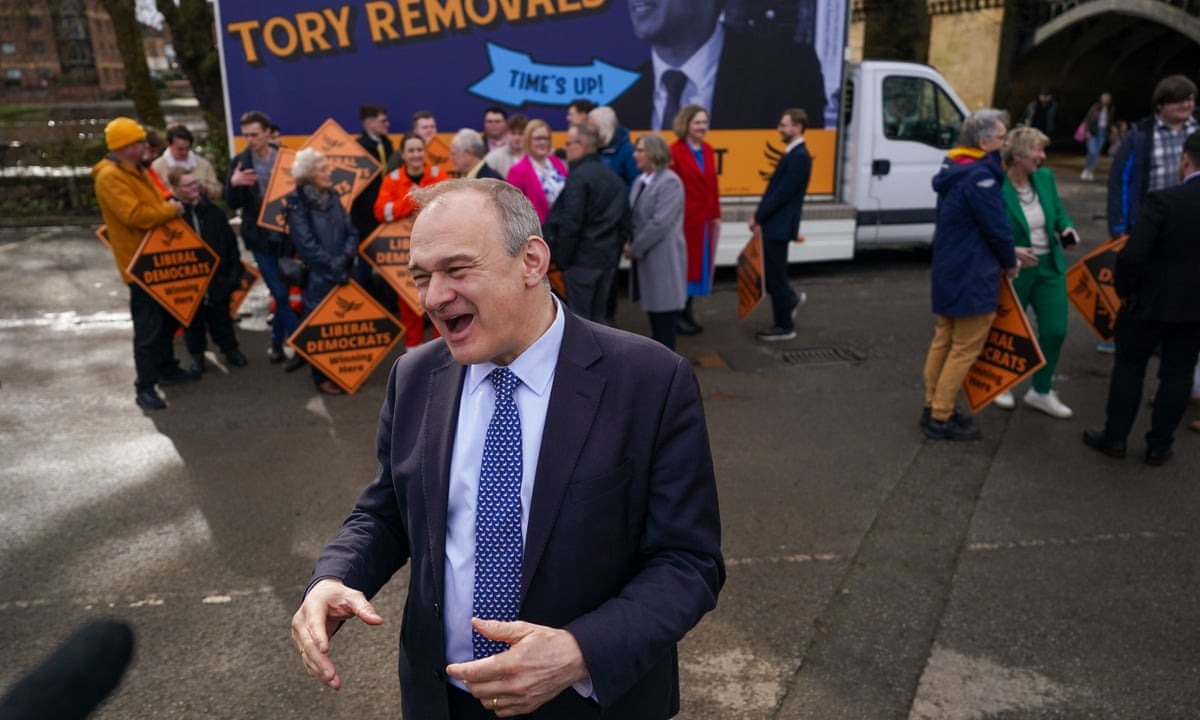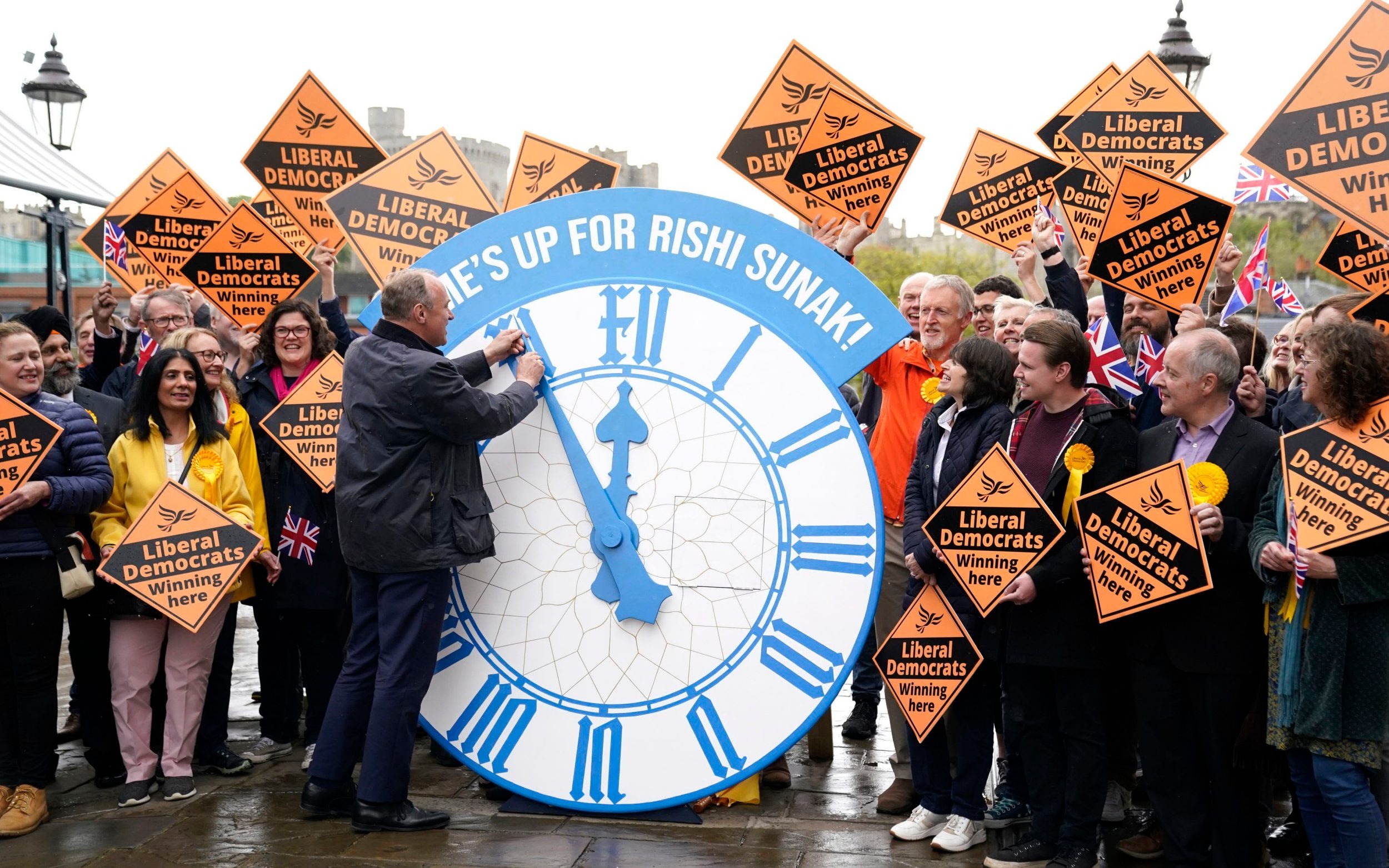The Liberal Democrats are increasingly optimistic about their prospects in the upcoming general election, with local election results indicating potential victories in several Conservative strongholds.
Despite criticism over stagnant polling numbers and a slight decrease in projected vote share from last year’s local elections, the Liberal Democrats maintain confidence in their strategy of strategically targeting Tory-held wards.
Party strategists see this approach as effective, positioning them to challenge prominent Conservative figures such as Chancellor Jeremy Hunt, Housing and Communities Secretary Michael Gove, Justice Secretary Alex Chalk, and Rupert Harrison, former chief of staff to George Osborne, in constituencies like Surrey and Cheltenham.

Local election data reveals outstanding gains for the Liberal Democrats in key Conservative seats, with leads over their Tory counterparts. For instance, in Alex Chalk’s constituency, the Liberal Democrats secured 50% of the vote compared to the Tories’ 25%. Similar trends were observed in other areas like Surrey, Esher and Walton, and Tunbridge Wells.
Analysis of the local polls suggests that the Liberal Democrats performed strongly in Tory-facing wards where they actively campaigned, while struggling in Labour-facing areas where they did not focus their efforts. There are also hopes for a resurgence in Nick Clegg’s former constituency of Sheffield Hallam, where they are attracting Tory voters.
Election analyst Sir John Curtice acknowledges the Liberal Democrats’ strategic shift, emphasizing their targeted approach in challenging Tory strongholds compared to their anti-Brexit stance in the 2019 election.
The party’s resurgence is also evident in the south-west, where they have regained ground, securing control of councils in Dorset and making remarkable gains in Somerset and Devon.

While falling just short of winning total control of Wokingham council, the Liberal Democrats remain determined to unseat senior Conservative MPs, including former cabinet minister John Redwood.
They attribute their success to a growing disillusionment with the Conservative party, particularly in home counties where voters feel their representatives have become disconnected.
Meanwhile, the Greens are also celebrating progress, securing over 60 seats in last week’s elections. Their strong performance, especially in Bristol, where they could challenge Labour frontbencher Thangam Debbonaire, reflects a broader shift in political dynamics across England.
With a record number of councillors and promising election results, both the Liberal Democrats and the Greens are poised to shake up the electoral map in the upcoming general election.


